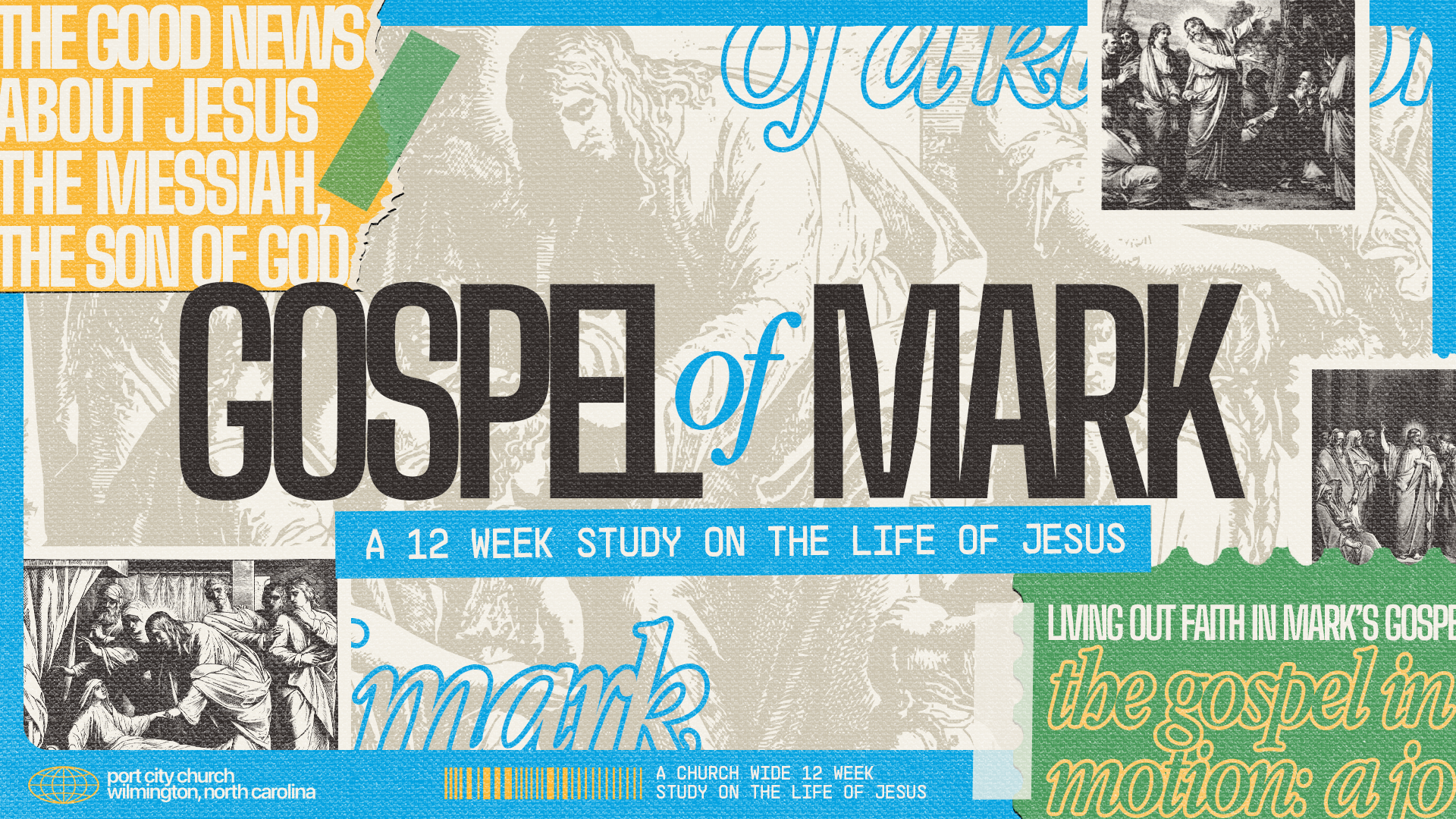Made For Man
READ
Two Sabbath incidents. Two confrontations. One revolutionary understanding of God's heart. In today’s passage, Jesus challenges not just Sabbath regulations, but the entire way we think about religious rules and their purpose.
Let’s take a moment to read Mark 2:23-3:6:
One Sabbath Jesus was going through the grainfields, and as his disciples walked along, they began to pick some heads of grain. The Pharisees said to him, “Look, why are they doing what is unlawful on the Sabbath?”
He answered, “Have you never read what David did when he and his companions were hungry and in need? In the days of Abiathar the high priest, he entered the house of God and ate the consecrated bread, which is lawful only for priests to eat. And he also gave some to his companions.”
Then he said to them, “The Sabbath was made for man, not man for the Sabbath. So the Son of Man is Lord even of the Sabbath.”
Another time Jesus went into the synagogue, and a man with a shriveled hand was there. Some of them were looking for a reason to accuse Jesus, so they watched him closely to see if he would heal him on the Sabbath. Jesus said to the man with the shriveled hand, “Stand up in front of everyone.”
Then Jesus asked them, “Which is lawful on the Sabbath: to do good or to do evil, to save life or to kill?” But they remained silent.
He looked around at them in anger and, deeply distressed at their stubborn hearts, said to the man, “Stretch out your hand.” He stretched it out, and his hand was completely restored. Then the Pharisees went out and began to plot with the Herodians how they might kill Jesus.
REFLECT
The first scene feels almost casual – disciples walking through a field, plucking grain to satisfy their hunger. But to the Pharisees, this simple act violates multiple Sabbath regulations. Jesus responds with a surprising reference: David eating the consecrated bread from the temple. It's a masterful argument because the Pharisees revered David, yet he had technically broken the law to meet a human need. Jesus then delivers the revolutionary statement: "The Sabbath was made for man, not man for the Sabbath."
The second scene ratchets up the tension. In the synagogue, a man with a withered hand becomes the focus of a trap. The religious leaders watch Jesus intently, hoping He'll heal on the Sabbath so they can accuse Him. Jesus' response reveals both grief and anger at their hardened hearts. He asks a penetrating question: "Is it lawful on the Sabbath to do good or to do harm, to save life or to kill?"
The silence that follows is deafening. These experts in the law can't answer a basic question about its purpose. They've become so focused on protecting the rules that they've forgotten their reason – to reflect God's character and promote human flourishing.
What's particularly striking is Jesus' emotional response. Mark tells us He looks around at them with anger, "grieved at their hardness of heart." This isn't just intellectual disagreement; it's heartbreak over how religious rules had become a barrier to God's love rather than an expression of it.
The healing itself becomes a powerful demonstration of Jesus' understanding of Sabbath. He doesn't wait until sunset when the Sabbath would end. He heals immediately, publicly claiming that acts of restoration and mercy are precisely what the Sabbath is for. It's meant to be a day that showcases God's restorative work, not restricts it.
This passage speaks powerfully to our modern religious practices. How often do our "good" rules become barriers to God's best? How frequently do we prioritize our religious traditions over human needs? Jesus isn't abolishing the Sabbath but restoring its true purpose – to bring life, not burden; freedom, not bondage.
The tragic conclusion – the Pharisees plotting with their political enemies to destroy Jesus – shows how threatening grace can be to religious systems. Sometimes we're more comfortable with our familiar restrictions than with the wild freedom of God's love.
RESPOND
Take a moment to process what God might be leading you to do in light of what you read.
When have you found yourself more concerned with being "right" than being compassionate? What does Jesus' example teach us about balancing truth and mercy?
REST
Take a moment to rest in God’s presence and consider one thing you can take away from your time reading, then close your devotional experience by praying:
Lord Jesus, forgive us for times we've turned Your gifts into burdens. Help us see Your heart behind every command and free us from religious rigidity. Teach us to rest in Your grace while extending that same grace to others. Give us wisdom to know when rules should bend to serve human needs and courage to stand for what truly matters to You. Amen.

